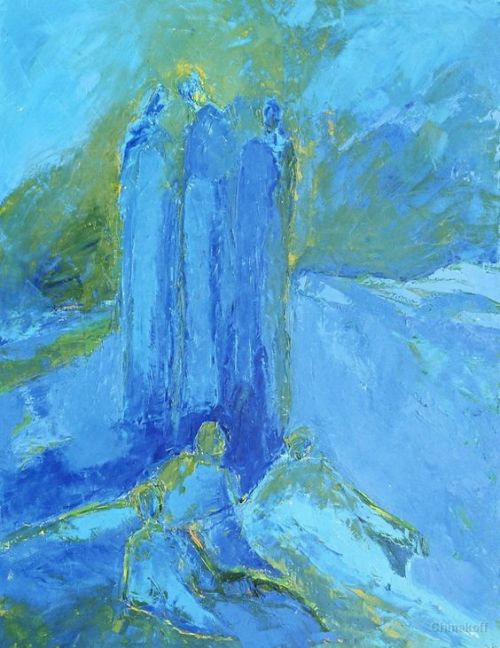
Psalm 116:10-19
Genesis 22:1-2, 9-13, 15-18
Romans 8:31-34
Mark 9:2-10
The event of the transfiguration of Jesus before Peter, James and John is good news of salvation and liberation. It was good news then; it is good news now. How so?
The meaning lies in the shattering of illusions or enlightenment it caused and continues to cause, and in the freedom experienced by persons as a result.
Jesus knew that Peter, James and John were the core of his core group of apostles, and he wanted them to be extra strong and faithful when the time came for him to suffer his redemptive passion and death, so that they could confirm the other apostles and all disciples in the faith in the period of crisis. The event served its purpose well but not too well before the resurrection of the Lord. At the foot of the cross stood only the John and the Tres Marias. John probably recalled the transfiguration. The women, unaided by the event, simply remembered the Master they loved transfigured in their love. As for the rest, well, they did not abandon totally the Lord.
What shattering of illusions did the transfiguration cause, suppose to have caused, totally or partially? What freedom did it occasion? The event shattered illusions that Jesus was a mere man, a sinner social worker, social critic, a bread-king, rabbi, a faith healer, just an ordinary human being society could dismiss as insignificant. The transfiguration revealed the glorious humanity and divinity of Jesus, the promised One of the Law and the Prophets. Freed from these and like illusions, the three apostles were gifted with freedom to enjoy a mystical experience of holiness incarnate and a vision of the kind of person each human is called to be. Jesus provided an experience to strengthen faith, enliven hope, and urge love to service and worship.
The transfiguration is good news for contemporary man and woman. It was and continues to be a reminder of who Jesus is and who people are and what creation truly is. Receiving the good news is participation in it as in ritual. The event is recalled and made present, and all of us are with Peter, James and John. And after the vision all are ordered to come down from the mountain of prayer and mystical experience to live in the real world to continue the good work of Jesus under conditions of risk: to call people to repentance; to proclaim good news of the Kingdom and expose the bad news of Empire; to teach and to heal the spiritually and physically sick – persons and institutions both; and above all to open the eyes of Society and Church to visions of possibility in the plan of God.
The transfiguration is also a reminder that it was not a one time event. It is repeated in events of holiness all around – the holiness of flora, fauna and the inanimate world, of people and their inventions. It is a reminder to see, mystically, every now and then the extraordinary in the ordinary beyond illusions: the holiness of a starry starry night; or of a baby, or that of a sinner converted, of a family transformed as a domestic church; the holiness of democratic local communities and progressive people’s organizations and non-government organizations; the holiness of faith communities; the holiness of struggles for justice and peace. We see the transfigured Jesus in forms of holiness in the world even before its resurrection made possible by him.
God in his love and mercy continues to grace us with transfigurations – especially when and where we need them most, because we easily allow ourselves to be victims of a hundred and one illusions that paralyze saving, or condemn us to repeat deadly mistakes of the past – especially the illusions of Empire of globalization, of dictatorship and martial rule, or of oppressive unjust states of national emergency with its fascist general orders. And then there is the greatest illusion of all – abandonment, experienced in the desert of one’s loneliness or feeling of helplessness or resignation to fate in personal or social crisis, where there is failure to connect with nature and ministering angels! Each one has this whatever. God gifts each with transfigurations: of his Son, of people’s power, of martyrs for justice and peace and prosperity for all.
And the reason and purpose of it all is this: to release us to freedom to love and serve, to have life and have it abundantly in his name. Look around and see and believe. #
— Rev. Fr. Francisco R. Albano
Isabela, Northern Luzon




 by Pastor Ariel Siagan, IEMELIF
by Pastor Ariel Siagan, IEMELIF